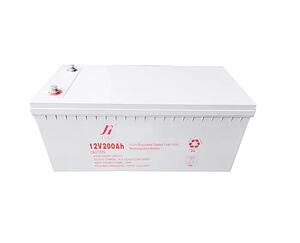-
 Find in Members
Find in Members Find in Videos
Find in Videos Find in Channels
Find in Channels
This website uses cookies to ensure you get the best experience on our website.
To learn more about our privacy policy Click herePrivacy Preference
- Tags - #Sealed Maintenance Free Battery
-
- Last updated November 23, 2022 0 comments, 116 views, 0 likes
More from Changshu wanglong
More in Politics
Related Blogs
Maintenance-Free Battery Replacement Precautions
Body
A true maintenance-free battery does not exist. Even with sealed batteries that do not require water, the terminals should be checked periodically and cleaned, and tightened if necessary.
For open cells, the main maintenance requirement is the regular addition of distilled or demineralized water. All battery periodic maintenance procedures should attempt to identify faulty cells or blocks. This can be done with specific gravity measurements (not possible with sealed batteries), voltage checks, or case temperature checks.
If really defective cells or blocks are detected (for example, internal shorts or zero capacity cells or blocks), they should be replaced if possible. However. It is not recommended to mix old and new cells or blocks in a series string. If replacing some batteries or blocks is considered, it is better to update all elements in a series group. If the cells consist of multiple parallel groups, the cells or blocks can be reconfigured so that cells with similar aging characteristics are in the same series string. If any cells or blocks are replaced, the new elements should be clearly marked. If the arrangement of series-parallel batteries changes, all parallel strings should be fully charged before parallel connection.
Dead batteries should be disposed of responsibly and not left where they could become a source of pollution. Lead-acid and nickel-cadmium batteries can be recycled and have a certain scrap value. If possible, arrangements should be made to return them to the local battery company or the original supplier. In fact, many countries now mandate the recycling of industrial nickel-cadmium batteries.
Changshu Wanlong Power Technology R&D Co., Ltd. is a lead acid battery manufacturer from China. The company sells 12v deep cycle gel battery all year round.










Comments